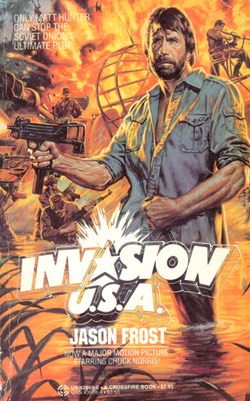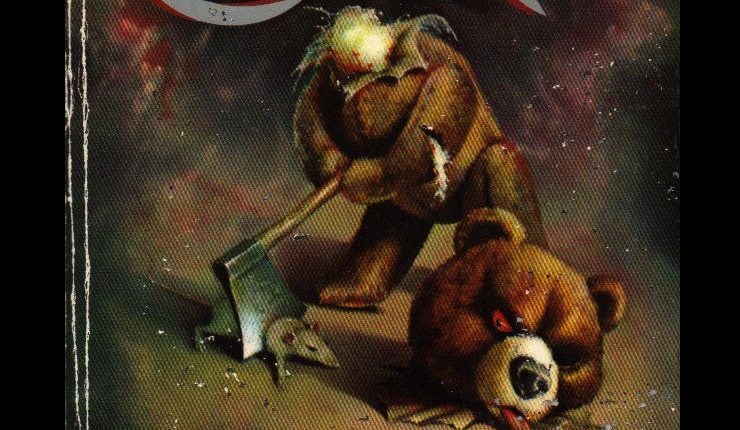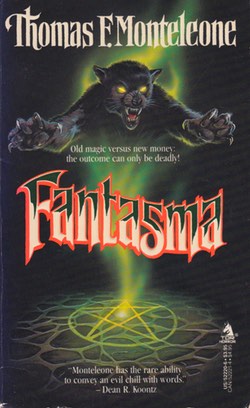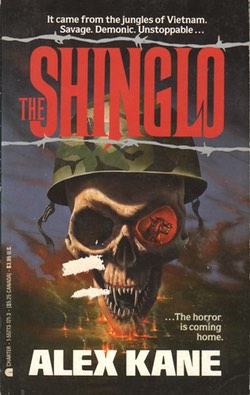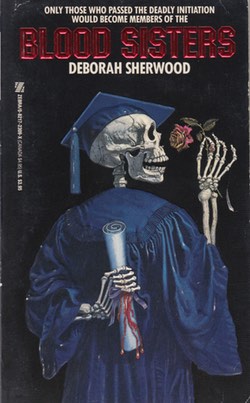Welcome to Freaky Friday, that day of the week when we review classic literature that has inspired great works of cinema, from Gone with the Wind and Great Expectations to The Godfather.
Books are the biggest things in movies. Almost every blockbuster movie franchise had its start on the printed page, whether it’s The Hunger Games and Harry Potter, or 50 Shades of Grey. People have always argued that the book is better than the movie, but a huge number of literary classics have become motion picture masterpieces. Weirdly enough, high brow books usually become terrible movies. Just look at Demi Moore in The Scarlet Letter, or Jack Black in Gulliver’s Travels, or Gwyneth Paltrow in Great Expectations. Or, better yet, don’t. Surprisingly the best movies come from the pulpiest books. Mario Puzo’s The Godfather is middlebrow schlock, but Francis Ford Coppola’s adaptation rests comfortably at number three on the AFI’s list of the 100 Greatest American Movies of All Time. Children of Men and Dr. Strangelove’s minor league source material would probably be forgotten if they hadn’t been adapted into classic films. Steven Spielberg has made a living out of this, turning a pretty lame novel (Jaws), beach chair pulp (Jurassic Park), and obscure second-string literary fiction (Schindler’s List) into three motion picture landmarks.
But usually, the book is better than the movie. The Iliad, Vanity Fair, The Hitchhiker’s Guide to the Galaxy, and The Cat in the Hat are all far better books than movies. So it’s probably no surprise that director Joseph Zito’s motion picture, Invasion USA, doesn’t live up to the literary heights of its novelization by Jason Frost.
Released in 1985, a month after the September release of the Chuck Norris action classic, Invasion USA, this novelization comes from Raymond Obstfeld, who also wrote his Warlord series under the Jason Frost name. The novelization is just as cheap and tawdry as the movie, probably because while the movie was from cut rate filmmakers, Cannon, the novelization is from cut rate publishers, Pinnacle. Founded in 1969 by the Michigan General Corporation, a mobile home and concrete pipe manufacturer, cash-strapped Pinnacle specialized in romance and men’s adventure, like Don Pendleton’s The Executioner series. Hobbled by a dispute with Pendleton over ownership of The Executioner character, reeling from an FTC-vetoed merger with Harlequin Books, and stunned by an ill-fated four-year move to Los Angeles, Pinnacle was an also-ran publisher in the Seventies. In 1985, the same year Invasion USA was released, it declared bankruptcy.
But that doesn’t stop this novelization from being a great work of world literature, far greater than the movie that bears the same name. Both start in similar fashion, with a boatload of hopeful Cuban refugees being pulled over by a fake American Coast Guard vessel whose crew welcomes them to America by showering them with the bullet-riddled brains of their comrades, before stealing the cocaine hidden in their hull, and setting them on fire. But Frost’s version is full of evocative details: it’s narrated by a gutshot pregnant refugee, the bodies that fall overboard are eaten by fish, and the entire scene is scored to Kenny Loggins’s “Footloose” playing on the radio. Now that’s art.
After Miami cops discover 20 corpses machine gunned in another drug-stuffed trawler, we see Frost’s other innovation — pesky lady reporter, Dahlia McGuire. In the film she’s forgettably played by the forgettable Melissa Prophet, one-time Miss Hollywood and Joe Pesci’s manager. In the book she’s a spunky hellfire, trying to solve the mystery that is Matt Hunter (Chuck Norris) by getting inside his pants and helping herself to a family-sized serving of “thick, matted hair.” Hunter enters the book as a mysterious figure recruited by the CIA to solve all this illegal immigrant violence which is actually the work of a Russian special forces psycho, Rostov. Hunter beat Rostov’s butt years earlier and carved an “H” into the Commie’s wrist, right next to his watch, so every time Rostov checks what time it is he immediately turns his face to the heavens and scream, “Hunnnterrrr!” We meet Rostov strangling an obese Texan who refused to pay the $10 surcharge for going anal with an underaged hooker. We meet Hunter in the Everglades where he lives not with a pet armadillo, but with John Eagle, a half-Irish Indian, bickering, barbecuing frogs, and drinking beer as they catch gators with their bare hands to sell to a gator wrasslin’ shop up the street. Both introductions are as memorable as the masterful first encounter between the escaped convict, Magwitch, and Pip in the beginning of Great Expectations.
Rostov invades our beautiful country with an army of terrorists because, “The Americans have grown soft, a nation of weeping children.” It’s a little harsh, but not entirely inaccurate. But first he checks the time, sees the H again, and goes bananas. As his terrorists spread out across the country, dressing up like black pimps to invade a country western bar and dressing as neo-Nazis to invade a Hanukah service (“Nazis in the synagogue!” someone shouts), Rostov goes on a side trip to kill Hunter but succeeds only in making it personal. Leaping his air boat through his destroyed home as it explodes around him, Hunter takes a moment in mid-flight to ponder all his flaming photos showering down around him, as the author snarls, “Now he was dealing himself back in for one last hand of showdown,” which sounds like one of those really complicated poker variations I can never quite grasp.
Rostov is a master of mayhem (“Give him ten minutes in a baby nursery and he’ll have the babies armed and demanding softer diapers,” Hunter sighs) and Hunter has to team up with Dahlia McGuire to take him down, resulting in the best sex scene ever written, as he steps out of the shower in her apartment, tells her she’s a terrible housekeeper, and shows her how to properly burp Tupperware, right before his towel falls to the floor and she leaps on him like a hungry house cat tucking into a pile of rotten fish. In the film, Director Zito has Norris teleport from terrorist attack to terrorist attack, but Frost takes a cue from Sir Arthur Conan Doyle, having Hunter deduce where the next attack will come from, then ambushing the terrorists as they have sex with prostitutes, and torturing them with his massive hunting knife.
The country descends into anarchy with gangs of civilians roaming the streets armed with spearguns and baseball bats, and supermarkets profiteer off the panic (a can of vegetarian Heinz baked beans sells for a shocking $2.50!). It all builds to a climax in the parking lot of a Food Basket supermarket where Hunter arranges Rostov’s dead terrorists into the initial “H” for “Hunter”, an action that enrages Rostov and sends him charging into Hunter’s trap, while simultaneously showcasing Hunter’s impressive “ikebana” skills — the delicate Japanese art of dead body arrangement.
Invasion USA ends, as all great literary classics end, with its protagonist being drafted into an elite freedom-fighting commando unit, and after I closed its covers I stood on my trembling legs, body charged with adrenaline, and tossed the paperback into the air. As it exploded into red, white, and blue fireworks I proudly saluted its burning pages and thought to myself, “Happy Fourth of July, America. God bless us, every one.”
 Grady Hendrix has written for publications ranging from Playboy to World Literature Today; his previous novel was Horrorstör, about a haunted IKEA, and his latest novel, My Best Friend’s Exorcism, is basically Beaches meets The Exorcist.
Grady Hendrix has written for publications ranging from Playboy to World Literature Today; his previous novel was Horrorstör, about a haunted IKEA, and his latest novel, My Best Friend’s Exorcism, is basically Beaches meets The Exorcist.










